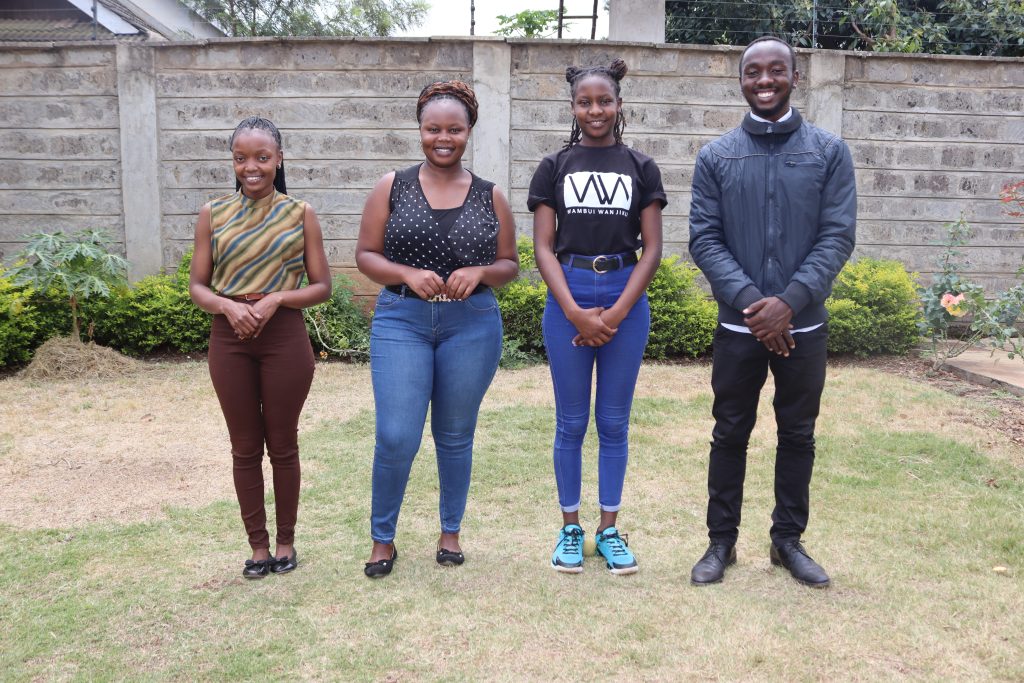We consider students fully transformed once they are employed. To enhance their employability, we launched several employment programs, one of them being the TechMates program. TechMates is our new technical training program focused on IT and digital marketing.
Launched in September 2021
The program began in September 2021. Seven graduates have benefited from this program so far. Each year we aim to recruit at least two interns every six months. During that period, they undergo basic technical training in WordPress website programming and design. After the training, they develop their websites and work on website enhancement and digital marketing for Friends of Ngong Road( FoNR), Ngong Road Children’s Foundation (NRCF), and Karibu Loo as an implementation of the skills acquired during the training. This enhances their technical and interpersonal skills which are key in the professional world.
Techmates Structure
The program is generally divided into two paths that individuals can choose to take depending on preference and area of expertise. They include :
- Developer Path – Generally involves web development and software creation and management.
- Team
- Services Offered
- Website Creation and maintainance.
- Bridging development and deployment of software(DevOps).
- Web hosting services.
- Web3 services.
- Cardano blockchain development and technology integrations.
- Digital Marketing Path
- Team
- Sallyanne Atieno, see story
- Kenjan Oduor
- Fammy Masiza, see story
- Nickson Odhiambo, see story
- Services Offered
- Social Media Management
- Content Writing
- Photography and Videography
- Search Engine Optimization (SEO) and Search Engine Marketing (SEM)
- Team
Experience with clients
We also seek clients that require freelancing services and provide them with TechMates. Our current customers include









